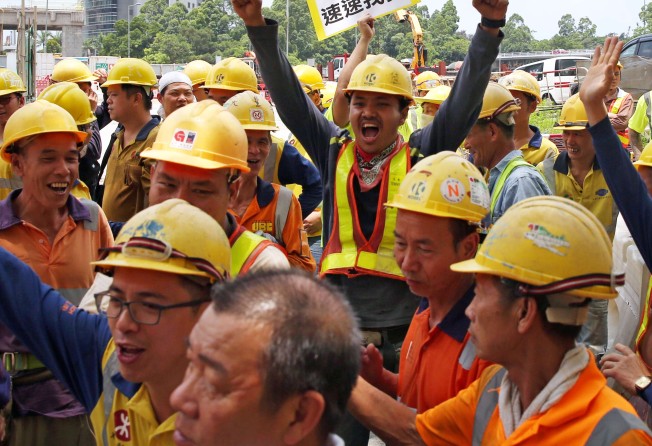Construction disputes are lengthy and costly battles in Asia
Failure to properly administer contracts, errors and omissions in contracts, and poorly drafted claims are the main causes of most disputes

According to the latest research released by international construction consultancy, Arcadis, the average value of Asian construction disputes is US$67 million, 45 per cent higher than the worldwide average of US$47 million. Moreover the average time to resolve disputes in Asia in 2015 was 19.5 months, four months longer than the global average.
Why is it then that Asia, a region that has seen phenomenal growth in construction has for several years held the unenviable position as one of the most costly regions for dispute resolution?
Thanks to the economic slowdown, mainland Chinese contractors are diversifying away from their home markets. Whilst many have shown themselves to be adept at operating in overseas markets they have faced challenges to adapt to business cultures and construction practises of different markets. An unexpected effect of this could be increased competition for work in overseas markets resulting in lower prices, and perhaps an increase in disputes as new entrants become familiar with new ways of working.
The downward trend in the overall value of construction disputes indicates a maturing of the approach to disputes in Asia. For example in Hong Kong the introduction of statutory adjudication, as part of the proposed Security of Payment Legislation, will certainly help to reduce both the cost and time of disputes.
The leading causes of disputes in Asia as reported in Arcadis’ research are; failure to properly administer contracts, errors and omissions in contracts, and poorly drafted claims.
All parties must administer and manage their contracts effectively and fairly. Mismanagement leads to disputes over both extension of time and payment. An external, independent certifier can help to ensure that the contract is properly administered, and this could be revisited.
Due to the feverish pace at which construction projects are conceptualised, approved and move into the build phase, there is always time pressure during the preparation of contract documents. Inevitably there will be situations where documents are considered to be misleading or ambiguous. Preparation of document before the design is complete will often cause issues. This reinforces the need for all parties to have adequate time to complete the documentation prior to tender, and for all contracts to be prepared by properly trained staff.
Even when parties take all available steps to ensure that their contracts are well prepared, claims are an inescapable aspect of the construction industry. It is an unfortunate fact that these claims are often poorly prepared, lacking proper legal or contractual support. Moreover they are often submitted with values that are both inflated and not substantiated. This can lead to misunderstandings of the basis of the claim and its proper worth.
Ensuring a positive outcome for all parties and maintaining a good relationship with contractual partners is key to developing long-term professional relationships in the construction industry. Full consideration of the best approach to any claim is therefore highly desirable if misunderstandings are to be avoided, and the claim properly settled.
The report states that globally one in four joint ventures end in dispute and this increases to 41 per cent in Asia. With such an incredibly high figure, this brings a stark warning to all those intending to form a joint venture. Joint ventures are like marriages – it must be expected that there will be different opinions from time to time. Crucially every joint venture agreement should be fully considered, including very practical and proactive approaches to any differences of opinion, and means of readily and cheaply resolving disputes, so that the contract is not impacted.
The three most commonly used methods of resolving disputes in Asia have ben identified as party to party negotiation, arbitration, and mediation. However, all parties in disputes should seriously consider mediation first before embarking on arbitration.
It is worth noting that adjudication does not currently appear in the list of dispute resolution methods favoured in Asia. However, following the introduction of the Security of Payment Legislation (SOPL) in Hong Kong, which will make adjudication a compulsory first step in the resolution of most disputes, it will likely top the list in the future.
Adjudication will enable a binding decision to be speedily provided, unless overturned in a subsequent arbitration, and payment to be received at an early date rather than suffering the lengthy delays for additional payment which are commonplace in the industry at present.
The Security of Payment Legislation will have a fundamental effect on how much of the construction industry operates in Hong Kong. It will be essential that all parties in the industry fully prepare for the introduction of SOPL.
Chris Morgan is executive director of The Contracts Group, specialist consultants in managing contracts and the avoidance and resolution of disputes.